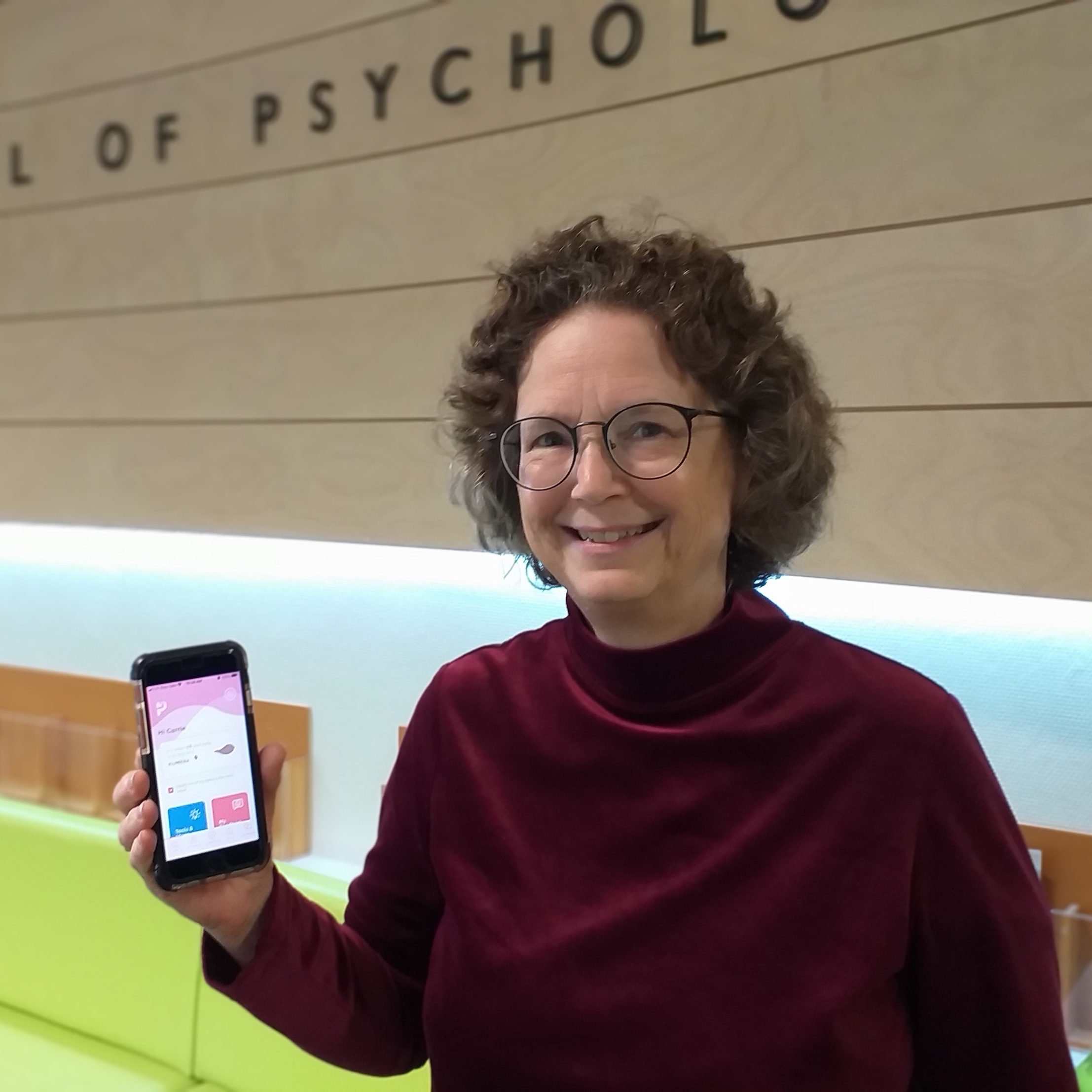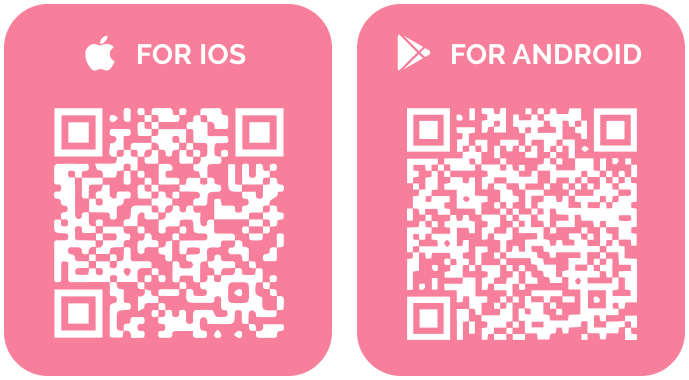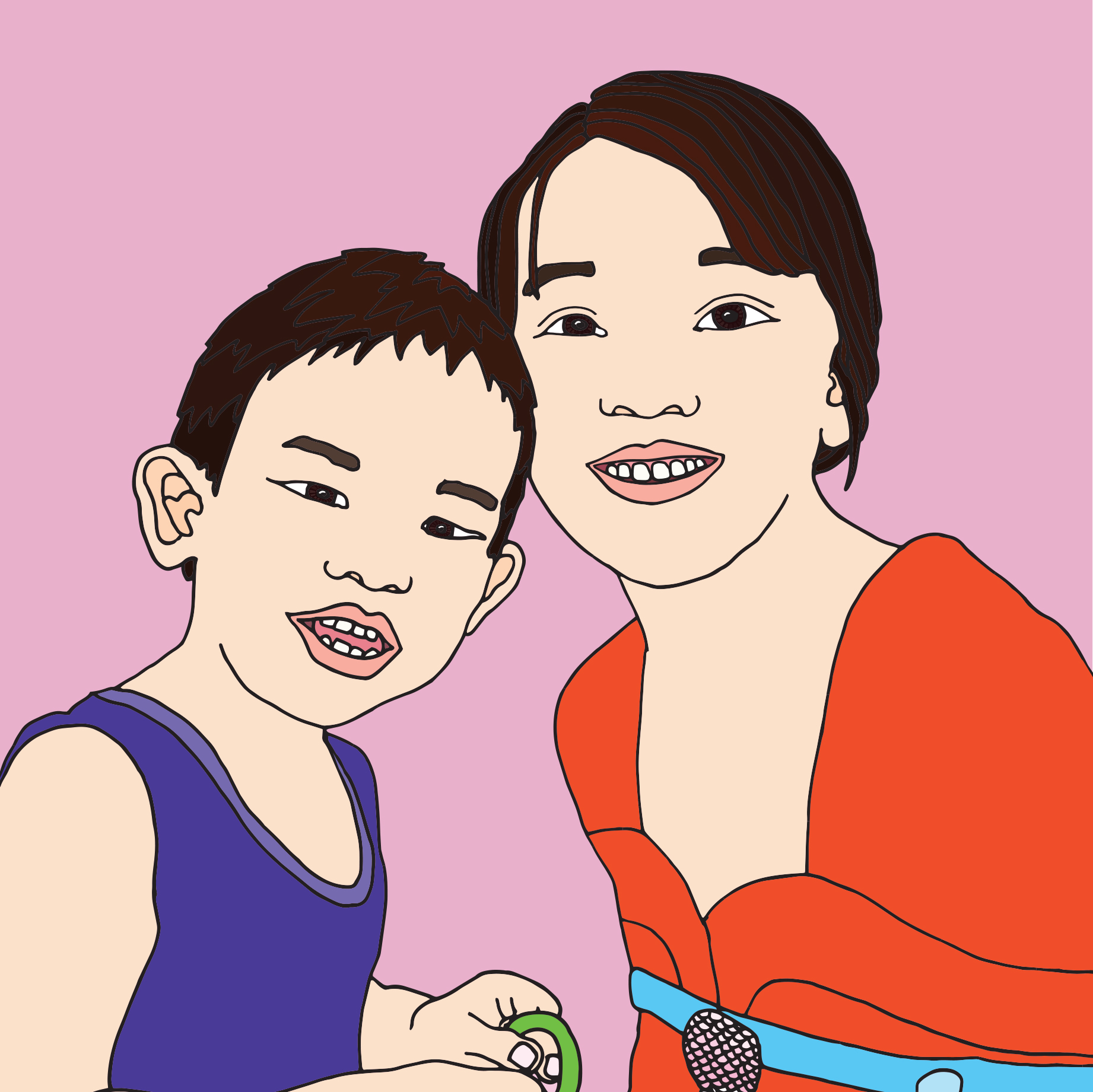Interview with Dr Carrie Barber, Perinatal Psychologist & Developer of Pregnancy App, Positively Pregnant

Positively Pregnant is an app designed by the University of Waikato to help prevent postnatal depression and anxiety among expectant mothers and to help pregnant people find the support and strategies they need for positive mental health. We spoke to Dr Carrie Barber about the app and why it’s so vital for hapū māmā in Aotearoa to take care of their mental, spiritual and emotional wellbeing during pregnancy.
You’ve developed a new app for hapū māmā called Positively Pregnant. What of your personal experiences have fostered your passion for supporting mothers through pregnancy?
The beginning of my parenting journey was pretty stressful. I had two miscarriages (which is not unusual, but when it’s you, it is pretty scary), and then in my third pregnancy – just when I was feeling more confident and starting to plan the baby’s bedroom – at 27 weeks, I started to have contractions. I was admitted to hospital, and they were able to stop the contractions, but after a week where I was discharged and then re-admitted within 24 hours, I was finally sent home to be on bedrest for the next two months.
This was in the days before we were all connected to the internet, so I was lying on the couch at home, way out in the country, for weeks, worrying, and fumbling through cross-stitch, and reading, and hoping. It was ok in the end; my son grew and was wedged in there cross-ways, so he had to be plucked out by caesarean, but it was definitely an anxious, stressful time.
A few years later, when I came to New Zealand to work at Waikato University, I decided to focus my energy on understanding and trying to help with the stresses and worries of becoming a mum.
Can you tell us how the Positively Pregnant app works in terms of the functions and key components?
Positively Pregnant is based on a couple of main ideas. The first is that people are different and no one thing will work for everyone, so each of us has to develop our own set of strategies and habits to help us cope with the challenges of the world. Second, directing our attention to the good and important things in life – our values, strengths, and hopes – is usually more helpful than paying attention to the inner bully who says we’re doing it all wrong. Pregnancy can be a stressful time, but it is also a time of opportunity, when parents are looking at themselves and are motivated to make healthy changes to their lives. This means it’s a good time to take stock and think and talk about your hopes, plans, worries, and who and what is out there to help the family get off to a good start.
Positively Pregnant provides tools to do this. It’s made up of four main sets of activities and resources. First, there is ‘Know Yourself’ – these are questionnaires about things like personal strengths and resources, stressors, self-care strategies that you’ve tried or might want to try, who’s there for social support, and your style of thinking and making decisions (because there are so very many decisions to make as a parent). Each of these provides feedback, and for some (like ‘Know Your Stressors’), there are links to information about the particular things you’ve been coping with.
The app also has some activities within it, called ‘Do Something,’ that may help with relaxation or coping, or are just creative or fun activities for self-care. There are six audio-guided relaxation sessions, things to help focus on the good stuff, a gratitude journal, reminders to act on your specific strengths and values, and a way to send yourself positive thoughts. There is also a journal that can include notes and photos (‘Notes to Baby’), a creative activity tool, and links to funny videos, because sometimes we just need to laugh.
Then there are ‘Conversations’, which provide questions to spark conversations with the partner, support person, or for personal reflection, looking at what’s coming. These range from ‘Who Does What?’, about that perennial challenge, household chores, to finances, traditions and rituals, birth plans, and hopes and dreams for the child.
Finally, there are 30 short articles about all sorts of things related to emotional and social changes in pregnancy and early parenting, from dealing with information overload to co-parenting, managing worries, infant attachment, and how to get more help if it’s needed.
How does Positively Pregnant differ to other pregnancy apps in the market?
Positively Pregnant is focused on the emotional and social changes of pregnancy – most apps are more about the physical changes and the development of the baby. Also, it was made in and for New Zealand, with link to local resources, and recognition of New Zealand cultures and concerns.

The app has a focus of supporting Kiwi mothers with their mental wellbeing. Is this app designed to support anyone through their pregnancy, or is it predominantly targeted at those who would benefit from additional help with their perinatal mental health?
Although we hope it will be especially helpful to those who are struggling with anxiety, stress, or low mood, it’s really made for anyone who is pregnant and is interested in thinking about and working on their overall wellness – emotional and physical – because those two go hand in hand. There are bits of information and advice that are relevant to all sorts of people; there is a lot in there, with the expectation that no one will need all of it, but there should be a lot that is interesting to anyone starting a family.
How does Positively Pregnant align with the Māori healthcare model, Te Whare Tapa Whā and seek to support indigenous māmā during their hapūtanga?
Te Whare Tapa Whā isn’t incorporated explicitly – though that’s a good idea! The elements – whānau, tinana, hinengaro, and wairua – are all woven throughout the app, and I think (hope) Positively Pregnant presents the kind of holistic approach that fits well with Māori whānau as well as many other cultures.
Whānau, of course, is central to the app, including the broader whakapapa whānau as well as kaupapa whānau. Hinengaro is also naturally central to the purpose of the app, and so there are many opportunities to reflect on and try out tools to support healthy hinengaro. Tinana is a work in progress – the first version of the app had tools to evaluate and set goals for physical health and healthcare, and these have not yet been included in this version, awaiting more funding for the programmers, but there is information about the intersection of mind and body, and on the physical as well as emotional changes in pregnancy. Wairua is included in different ways, in order to be inclusive for the ways different people experience the spirit and the spiritual. Various activities, conversations, and articles talk about making choices around cultural or religious traditions and identifying the values and traditions you want to carry as parents.
We had consultation throughout the process of developing the app with Bridgette Masters-Awatere, a Māori community psychologist with lots of experience in health care settings, and she wrote the section on Māori tikanga for pregnancy and birth. We hope that the app will be useful to indigenous māmā, and explicitly sought input from them during the development and piloting phases.
What impact can stress and mental distress during pregnancy have on a mother and their baby after birth?
I’d like to answer that in two ways – thinking of the individual mother and what we know from research on large numbers of mothers.
We know from research that high levels of stress, anxiety, and depression can be harmful both to the pregnant person’s wellbeing, and to the development of the child and the risk for things like preterm birth and complicated deliveries. Some of that is probably due to the physiological consequences of stress – it changes your hormones and neurotransmitters, and since the baby shares a lot of this, it can affect the baby’s development, and has been linked with things like ADHD, asthma, and changes in cognitive development. Some of that is also probably due to the things that come along with stress and distress – it’s harder to remember to eat right, sleep, take care of yourself, and to avoid doing those things that are often people’s fall-backs when they’re stressed (smoking and drinking, for instance).
It’s important to remember though, that this research is all about information from large groups of people, and the differences are important because they point out the need to support new families, and give us clues as to how to be healthier, but it doesn’t mean that if you had a really hard time in pregnancy, your baby will be damaged in some noticeable way. Many of the factors that link stress and outcomes can be helped by the kind of strategies and tools that Positively Pregnant provides. In other words, at a personal level, there are things parents can do to reduce the effects of stress, and it is definitely not helpful to worry about being stressed out…it is helpful to use that feeling as a spur to figure out what helps, even a little bit. Every little bit does make a difference.
Other than utilising the app, what are some other ways pregnant people can best support themselves throughout their pregnancy and postnatal period in terms of taking care of their mental health?
One of the main ones, for most people, is to connect with the people around you who make you feel good, who can understand and support you, and with whom you enjoy spending time. Stay active as much as possible – check with your LMC, but unless there is some reason you shouldn’t be exercising – exercise, especially outside in the daylight, is one of the best antidotes to depression, stress and anxiety that we know about. Something like taking a walk with a friend would be a great combination of those two things. Other than that, it’s different for different people, but broadly it’s trying to turn your attention to noticing the good things in life, and finding out which activities – creative, social, physical, helping others – make you feel good, and doing them regularly.



